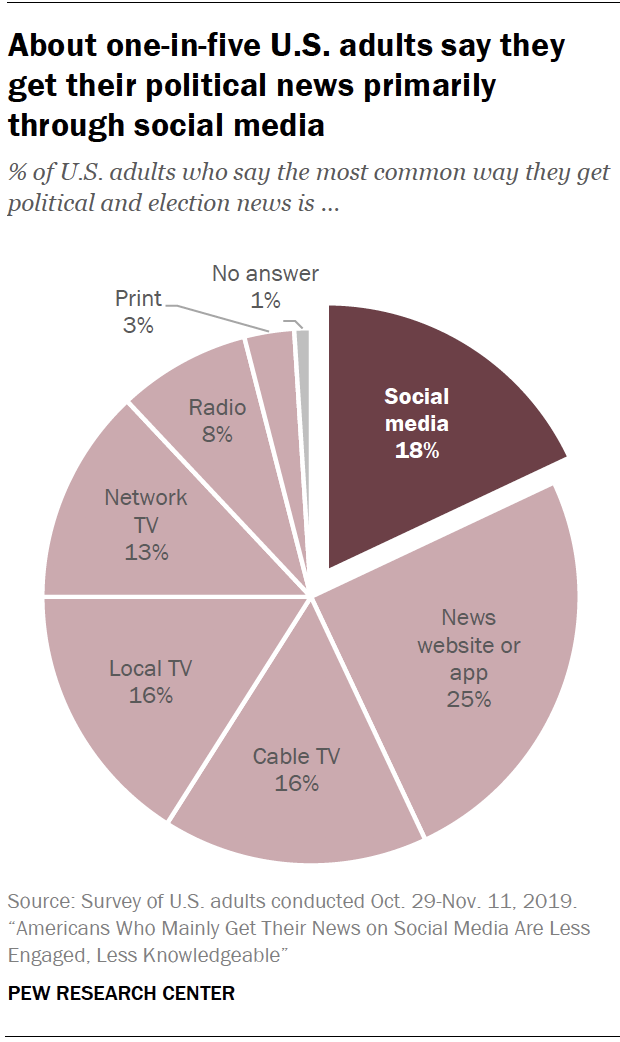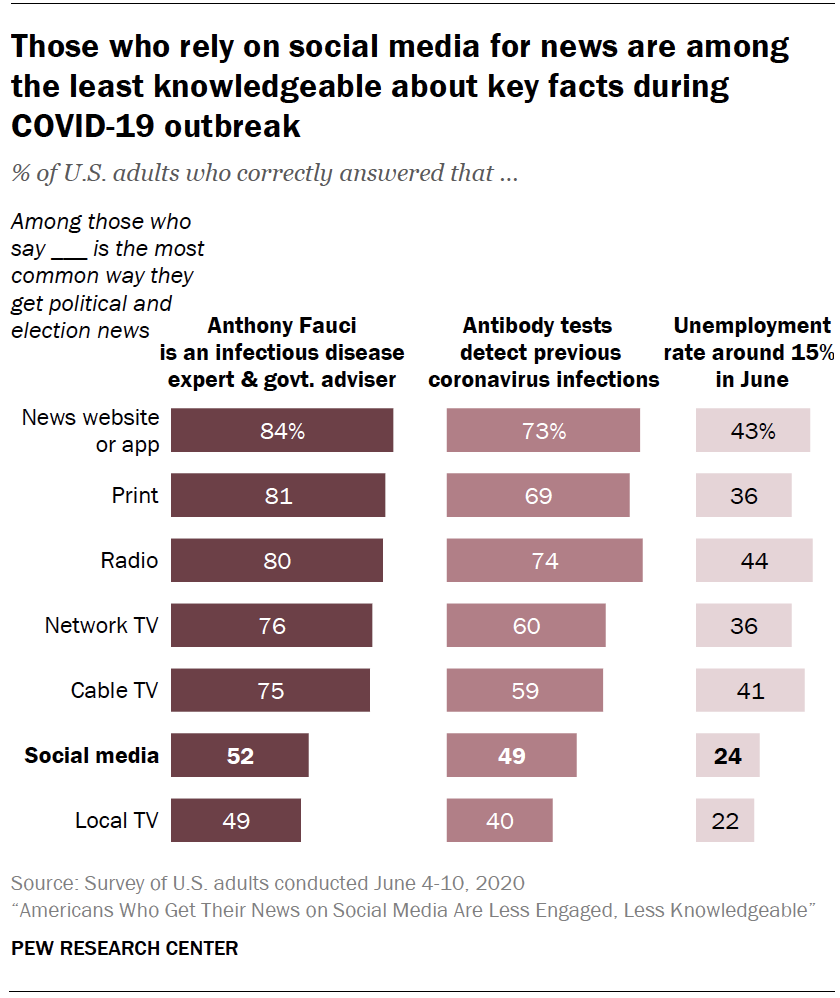Cue the memes. Americans who get news mainly from social media sources are less engaged and less knowledgeable. They’re also less likely to get the facts right about the coronavirus and politics. Recent findings from the Pew Research Center shed light on what social media users believe online. (Hint for brand journalists: that news clip you shared could have shaped a follower’s perception more than you know.)
The study was conducted through the Center’s American News Pathways, an initiative to learn how the public navigates news. In surveys sent over nine months, 8,000 to 12,000 adults answered questions relating to their news consumption and current events.
The Numbers
They compared news websites and apps, social media, local, cable and network TV, radio, and print. Here’s what they found:
- 25% of U.S. adults, news websites and apps are the most popular pathways for information about political and election news. Social media follows that at 18%, on par with those who say their primary pathway is cable or local TV. Network TV, radio, and print have the lowest shares.
- Adults who rely on social media are younger, less likely to be white, and have lower levels of education.
- They also tend to pay less attention to the news than those on other pathways. Four times as many people who turn to cable TV and print news follow the election “closely” compared to those who get their news from social media.

But that’s not all they uncovered.
“Even as Americans who primarily turn to social media for political news are less aware and knowledgeable about a wide range of events and issues in the news, they are more likely than other Americans to have heard about a number of false or unproven claims,” the authors concluded.
One specific claim they tested was the conspiracy theory surrounding the documentary Plandemic; the belief that people in power planned the Covid-19 pandemic. Far more social media news devotees—81%—had heard the conspiracy rumors than any other news followers. “They were also more likely to hear that taking vitamin C would prevent Covid-19 and that there’s a connection between the virus and 5G mobile technology,” the authors added.
Whether or not these social media fans believed that news is fuzzier. But there are some concerning findings there, too.
Where Do You Get Your News?
By April, 68% were confident they’d seen misinformation about Covid on social media; much fewer than the number of people who had reported seeing unsubstantiated rumors. Those who rely on social media outranked others in believing political conspiracy theories. Less than 40% are “very concerned” about how false news might affect the 2020 presidential election.

The findings, while they may not be surprising, are an essential reminder for brands engaged in social media. The news you share could be the only news a fan will see. How you share it is critical, too, since it can shape your readers’ perception of the truth.
No pressure, right? It’s a responsibility your brand acquired when it decided to leap into brand journalism via social media.
Brand journalists are arguing similar issues, specifically on how differing points of view are being shared on editorial pages. Kelly McBride, Senior Vice President and Chair of the Craig Newmark Center for Ethics and Leadership at the Poynter Institute, recently addressed the responsibility in a way that may help brand journalists decide when and how to share news on social media.
“The relationship with the audience is built around your content, and you want your audience to trust you,” McBride said. “That trust grows from an understanding of whether the information that you’re providing is accurate and ethical, so it grows out of your foundational values. And those ethics should be articulated based on what your core promise is to your audience. So you have to understand your content strategy, and what you’re promising your audience, in order to develop an articulation of your ethics strategy.”
You can view the complete Pew Research Center study here and access the Center’s other American News Pathways reports here.





Join the conversation